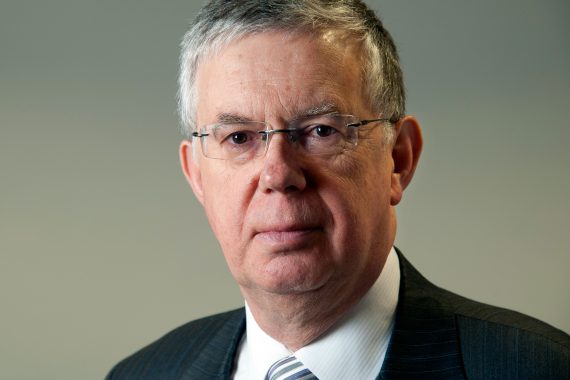NICE chair launches work on GP advisory body

NICE is setting up an informal meeting with leading GPs to kick-start its new GP advisory body, the chair of the organisation has announced.
Professor David Haslam told Pulse he wanted the panel to initially find out ‘what is bugging GPs about the way NICE does things and how we can make it better’.
As reported by Pulse earlier in the year, the new consultative ‘GP advisory board’ has been in the pipeline for some months following disquiet over the way some of NICE’s guidelines were being handled.
GPs have raised persistent concerns about the feasibility and evidence behind some of NICE’s proposed and published guidelines, including its decision to lower the risk threshold for primary prevention of cardiovascular disease to a 10-year risk of 10% and subsequent push to incentivise GPs to treat patients with statins at this risk level – something NICE has subsequently admitted should have been considered more carefully.
In addition, there have been objections to the way guidelines have been communicated to the media, with claims around asthma misdiagnosis branded ‘dangerous’ and threats that GPs should be reported to the GMC for overprescribing antibiotics leading to urgent talks with the GPC.
Professor Haslam told Pulse the new board would include GPs that the profession would ‘feel are on their side’ but would not reveal names, as he has yet to invite them.
He said: ‘We will be setting up a small consultative group – I can’t tell you who with because I haven’t approached them yet but I think there will be some people that GPs will feel are very much on their side, who can work with us.’
He added: ‘Initially it’s going to be an informal meeting to discuss what’s the best way we can tackle the sort of issues that Pulse has been so effective at flagging up.’
Professor Haslam added that ‘NICE is seen as part of the establishment that is causing general practice problems’ and that he wanted to find a ‘positive way of working with GPs to produce the best possible advice to help them do what they want to do, which is deliver high-quality care’.
The NICE chair said the new body would consider the possibility of a GP panel or ‘jury’ coming in to scrutinise proposed guidelines before they were published – an idea put forward previously by the GPC and more recently by the chair of the RCGP’s overdiagnosis group, Dr Margaret McCartney, at the college’s annual conference.
However, he said ‘there are a number of different ways we could do things, which is why I want initially to be meeting with these GPs to talk about, firstly what’s the problem and secondly how can we solve it’.
Pulse July survey
Take our July 2025 survey to potentially win £1.000 worth of tokens

Visit Pulse Reference for details on 140 symptoms, including easily searchable symptoms and categories, offering you a free platform to check symptoms and receive potential diagnoses during consultations.










